Chemistry
Staff
Subject Coordinator Mr. J. Finlay
Teacher Mrs. J. Jenks
Teacher Miss. T. Carberry
Curriculum
GCSE
Pupils will be entered for the GCSE Chemistry specification offered by CCEA at the Higher Tier Level. A course based on this specification will help prepare pupils for the study of Chemistry and related subjects at a more advanced level. A GCSE in Chemistry is relevant not only to the field of science but also to areas of commerce and public service that value problem-solving and practical skills.
The course is comprised of 3 units:
-
Unit 1: Structures, Trends, Chemical Reactions, Quantitative Chemistry and Analysis (35%)
-
Unit 2: Further Chemical Reactions, Rates and Equilibrium, Calculations and Organic Chemistry (40%)
-
Unit 3: Practical Skills.
-
Booklet A – 2 externally marked practicals carried out in school (7 ½ %)
-
Booklet B – externally marked practical exam (17 ½ %)
Pupils will sit the Unit 1 in June of Year 11
The Unit 3 Booklet A will be completed in March of Year 12
The Unit 2 and Unit 3 Booklet B will be sat in June of Year 12
The Practical Skills Unit makes up 25% of the qualification. The acquisition and development of the skills needed for this unit will form part of the normal classroom teaching and learning. A series of prescribed practical tasks will be carried out as part of the course. Students will be assessed in practical skills in the second term in Year 12 and will also answer structured questions set in a practical context in a written practical exam.
AS/A2
At A level, Chemistry follow the CCEA Specification.
AS Chemistry builds on the knowledge, understanding and skills developed within GCSE Science. The specification adopts a modular structure and pupils are required to study 3 modules for the AS course.
The knowledge base is contained within the first 2 modules consisting of general chemistry (AS 1) and organic, physical and inorganic chemistry (AS 2). Experimental skills continue to be developed and are assessed by means of a practical examination (AS 3) which accounts for 20% of the overall AS.
The practical section consists of booklet A with a variety of practical tasks carried out in the laboratory and booklet B which tests their knowledge of practical techniques.
To obtain a full A level a further 3 modules are studied in Year 14. Module A2 1 and A2 2 contain further organic, physical, inorganic and analytical chemistry while Module A2 3 is a practical exam with a similar format to the AS Module 3.
Assessment Unit and Weighting
|
Module |
AS 1 |
AS 2 |
AS 3 |
A2 1 |
A2 2 |
A2 3 |
|
Weighting |
16% |
16% |
8% |
24% |
24% |
12% |
Careers
As well as being an interesting and enjoyable subject, it is also an important and often essential subject choice for many career paths including medicine, dentistry, veterinary medicine and the biomedical sciences.



Close
Social Media